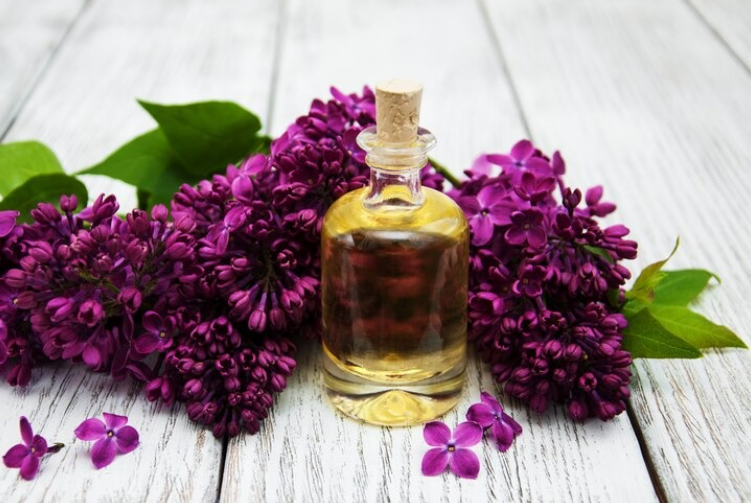Your heart does more than just beat—it responds to everything you feel and experience. From daily stress to poor sleep, modern life takes a toll on cardiovascular wellness. Research now shows that stress and chronic inflammation can play a big role in heart health. When your body is in a constant fight-or-flight mode, it affects blood pressure, circulation, and overall heart function.
That’s where essential oils for heart health may offer gentle support. Used for centuries in natural medicine, these oils are gaining new attention for their calming, anti-inflammatory, and circulation-boosting effects. While they’re not a cure, they can be powerful natural remedies for heart health when combined with a healthy lifestyle.
In this article, we’ll explore some of the most effective essential oils known to support cardiovascular wellness. From lavender and frankincense to ylang-ylang and rosemary, each oil offers unique benefits for your heart and mind.
Whether you’re looking to ease tension, promote better blood flow, or simply find a more peaceful rhythm in your day, nature may have just what your heart needs.
How Essential Oils Support Heart Health
Essential oils do more than smell good—they interact with your body in powerful ways. Through aromatherapy for heart wellness, these plant-based compounds may help ease the burden on your cardiovascular system, especially when stress and tension are constant.
One major benefit is stress relief. Oils like lavender and bergamot help reduce cortisol, your body’s main stress hormone. Lower cortisol levels mean reduced strain on the heart, calmer blood vessels, and better blood pressure control. In fact, several studies show that regular use of relaxing essential oils may lower heart rate and improve heart rate variability, both markers of good heart health.
Some essential oils also improve blood flow. For example, rosemary and ylang-ylang can help dilate blood vessels and increase circulation. Better circulation supports healthy blood pressure and reduces the risk of clot formation.
In addition, many essential oils contain antioxidant and anti-inflammatory compounds. These natural chemicals help reduce oxidative stress and inflammation—two major drivers of heart disease. Oils like frankincense and clary sage have been studied for these effects and show promise as complementary tools for cardiovascular care.
While essential oils aren’t a cure, they offer gentle, supportive benefits. When used wisely, they can be a natural addition to any heart-healthy lifestyle.
Top 7 Essential Oils for Heart Health
When it comes to natural ways to care for your heart, essential oils offer more than pleasant aromas. These plant-based extracts can ease tension, support circulation, and reduce inflammation—three big players in heart wellness. Below are some of the best essential oils for heart health, backed by tradition and modern research.
1. Lavender: The Classic Calming Oil

Lavender is one of the most widely studied calming essential oils for heart support. It helps reduce anxiety and lower stress hormones like cortisol. In one study, patients exposed to lavender oil showed reduced heart rate and blood pressure. Its calming effect promotes overall cardiovascular balance, especially during periods of emotional stress.
2. Ylang Ylang: Natural Blood Pressure Support
Ylang ylang has a sweet floral scent and is known for its ability to reduce blood pressure and slow the heart rate. Clinical trials suggest it relaxes blood vessels and helps the body shift into a parasympathetic, or “rest and digest,” state. This makes it especially helpful for managing high blood pressure linked to stress.
3. Frankincense: Anti-Inflammatory and Cellular Support
Frankincense is rich in compounds that fight chronic inflammation—a known contributor to heart disease. Its antioxidants help protect blood vessels and support healthy cell function. Though more research is needed, frankincense may also reduce stress by calming the nervous system.
4. Rose: Uplifting for the Heart and Mind
The gentle scent of rose oil has been shown to ease emotional stress and promote a sense of peace. A calm mood can benefit the cardiovascular system by reducing blood pressure and improving heart rate variability. Rose also offers antioxidant support, adding a layer of protection against oxidative damage.
5. Peppermint: Energizing and Circulatory Boost
Peppermint oil is best known for increasing alertness, but it also supports healthy blood flow. It may stimulate circulation and help reduce fatigue—especially in people who feel sluggish or tired from poor circulation. Some small studies even link peppermint to improved exercise performance and oxygen delivery.
6. Clary Sage: Hormonal Balance and Stress Reduction
Clary sage helps regulate cortisol and hormone levels, which can influence heart health over time. It also has mild sedative effects that ease stress and improve sleep—two essential factors in cardiovascular wellness. One study showed clary sage significantly reduced blood pressure and breathing rate during stressful situations.
7. Bergamot: Cholesterol and Mood Management
Bergamot is a citrus oil known for its uplifting scent. Research suggests it may help lower LDL cholesterol and triglycerides, making it unique among essential oils. It also boosts mood, which indirectly supports heart health by lowering stress and promoting emotional resilience.
When used safely and consistently, these essential oils for heart health can be part of a holistic strategy to reduce stress, improve circulation, and protect your heart. Whether you inhale them, diffuse them, or use them topically with a carrier oil, they offer a simple, natural way to support your cardiovascular well-being.
How to Use Essential Oils for Cardiovascular Support
Using essential oils the right way is key to getting the most benefits while keeping things safe. Whether you’re looking to relax, improve circulation, or ease emotional stress, there are a few easy methods to try. Here’s how to use essential oils for heart health in your daily routine.
Aromatherapy: Simple and Effective
Inhalation is one of the fastest ways to enjoy aromatherapy for cardiovascular wellness. Add a few drops of essential oil to a diffuser and breathe deeply. You can also place a drop or two on a tissue or cotton ball and inhale directly. This method works well for oils like lavender, ylang ylang, and bergamot.
Topical Use: Targeted and Soothing
Apply diluted essential oils to the chest, wrists, or back of the neck. Always mix the oil with a carrier oil like coconut, jojoba, or almond oil. A safe starting dilution is 2–3 drops of essential oil per teaspoon of carrier oil. Massage helps boost circulation and enhance relaxation.
Baths and Massage Blends
Adding a few drops of oil to a warm bath can help ease tension and improve circulation. Mix the oil with a tablespoon of carrier oil or full-fat milk before adding it to the water to help it disperse evenly. You can also create your own massage oil for a heart-friendly self-care routine.
Safety First: Use With Care
Essential oils are powerful. Always do a patch test before using a new oil on your skin. Avoid contact with eyes and mucous membranes. Some oils may not be safe during pregnancy or for people with certain health conditions. When in doubt, talk to your doctor—especially if you have a heart condition.
Precautions and Who Should Avoid Essential Oils
Essential oils can offer heart-supporting benefits, but safety should always come first—especially if you have a heart condition or take medications. Here’s what you need to know about essential oil safety before adding them to your wellness routine.
Talk to Your Doctor First
If you have high blood pressure, arrhythmia, or any other heart condition, always consult your healthcare provider before using essential oils. Some oils can affect blood pressure, heart rate, or interact with medications. A doctor or integrative health practitioner can help you choose safe options.
Watch for Drug Interactions
Certain essential oils and heart medications don’t mix well. For example, oils like grapefruit can interfere with how your body processes some drugs. Others may thin the blood or overstimulate the nervous system. Always research each oil or speak to a professional before use.
No Internal Use Without Supervision
Never ingest essential oils unless guided by a certified aromatherapist or licensed provider. Taking oils internally can be toxic or harmful, even if the oil is labeled “pure” or “therapeutic grade.” The risks are especially high for people with pre-existing heart or liver conditions.
General Safety Tips
Always dilute oils before applying them to your skin, and do a patch test first. Avoid using essential oils on broken skin or near the eyes. Pregnant women, children, and older adults should take extra care and stick to gentle oils under supervision.
FAQs About Essential Oils and Heart Health
Essential oils are gaining attention for their calming effects and potential heart health benefits. Below are answers to common questions about how they support cardiovascular wellness.
Can essential oils lower blood pressure?
Some essential oils—like ylang ylang, lavender, and bergamot—have been shown in small studies to help lower blood pressure by promoting relaxation. They work by calming the nervous system and easing tension, which helps the body reduce stress responses naturally.
Is aromatherapy effective for stress-related heart issues?
Yes. Aromatherapy for stress relief may be helpful for people who experience heart symptoms triggered by anxiety or chronic stress. Oils like lavender and frankincense are often used to promote calm and reduce cortisol levels, which in turn can support heart health.
Are essential oils safe for people with arrhythmia?
It depends. While some people with arrhythmia use essential oils for stress relief, others may be sensitive to their stimulating effects. Always consult your doctor before use. Avoid overly stimulating oils like rosemary or eucalyptus unless approved by a healthcare provider.
What’s the best time of day to use essential oils for heart support?
There’s no one-size-fits-all answer. Many people prefer morning use for essential oils that support circulation, such as peppermint or clary sage. Others find nighttime use more helpful for relaxation. Try using calming oils during evening routines and energizing ones earlier in the day.
Conclusion
When used wisely, heart-healthy essential oils can be a helpful part of your wellness plan. They may ease stress, improve circulation, and support emotional balance—three big factors in cardiovascular health.
But remember, essential oils for cardiovascular health work best when paired with healthy habits. Eat a heart-friendly diet, stay active, manage stress, and keep regular checkups with your doctor.
Think of essential oils as one tool in your toolbox—not a cure-all. Used in moderation and with care, they can help you create a more balanced, heart-supportive lifestyle.
